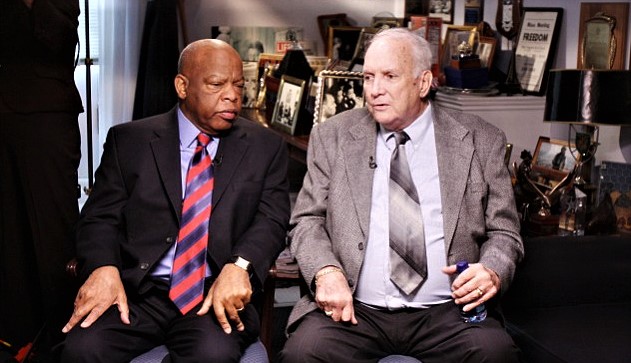With news that Congressman John Lewis — the last of the Civil Rights protestors who marched with Dr. Martin Luther King — was diagnosed with stage 4 pancreatic cancer, I was reminded of a commentary I posted ten years ago about an extraordinary act of forgiveness.

The last time Elwin Wilson saw Congressman John Lewis was at the Rock Hill, South Carolina bus station in 1961.
Lewis was a young civil rights protestor. Wilson was the white bigot who beat him up.
After decades of carrying the painful guilt, Wilson went to Washington to meet with the Georgia congressman.
“I’m sorry for what happened, down there,” Wilson told Lewis in an ABC interview that appeared on Good Morning America.
“That’s almost 48 years ago,” Lewis said. “Do you remember that day well?”
“I tried to get it out of my mind,” Wilson said.
According to an Associated Press story, “Lewis said Wilson is the first person involved in the dozens of attacks against him during the civil rights era to step forward and apologize. When they met Tuesday, Lewis offered forgiveness without hesitation.”
“I was very moved,” Lewis said. “He was very, very sincere, and I think it takes a lot of raw courage to be willing to come forward the way he did.”
“Wilson’s apology was first reported by The (Rock Hill, S.C.) Herald. After reading an article about local black civil rights leaders reacting to President Barack Obama’s inauguration, he and another former segregationist called the paper saying they wanted to apologize,” the AP reported.
“I never dreamed,” Wilson said, “that a man that I had assaulted, that he would ever be a congressman and that I’d ever see him again. He and everybody up there in his office … they were just good people, treated you right and all.”
“I never thought that this would happen,” Lewis said in the ABC interview. “It says something about the power of love, the power of grace and the power of people to be able to say, ‘I’m sorry.’ ”
Comments










